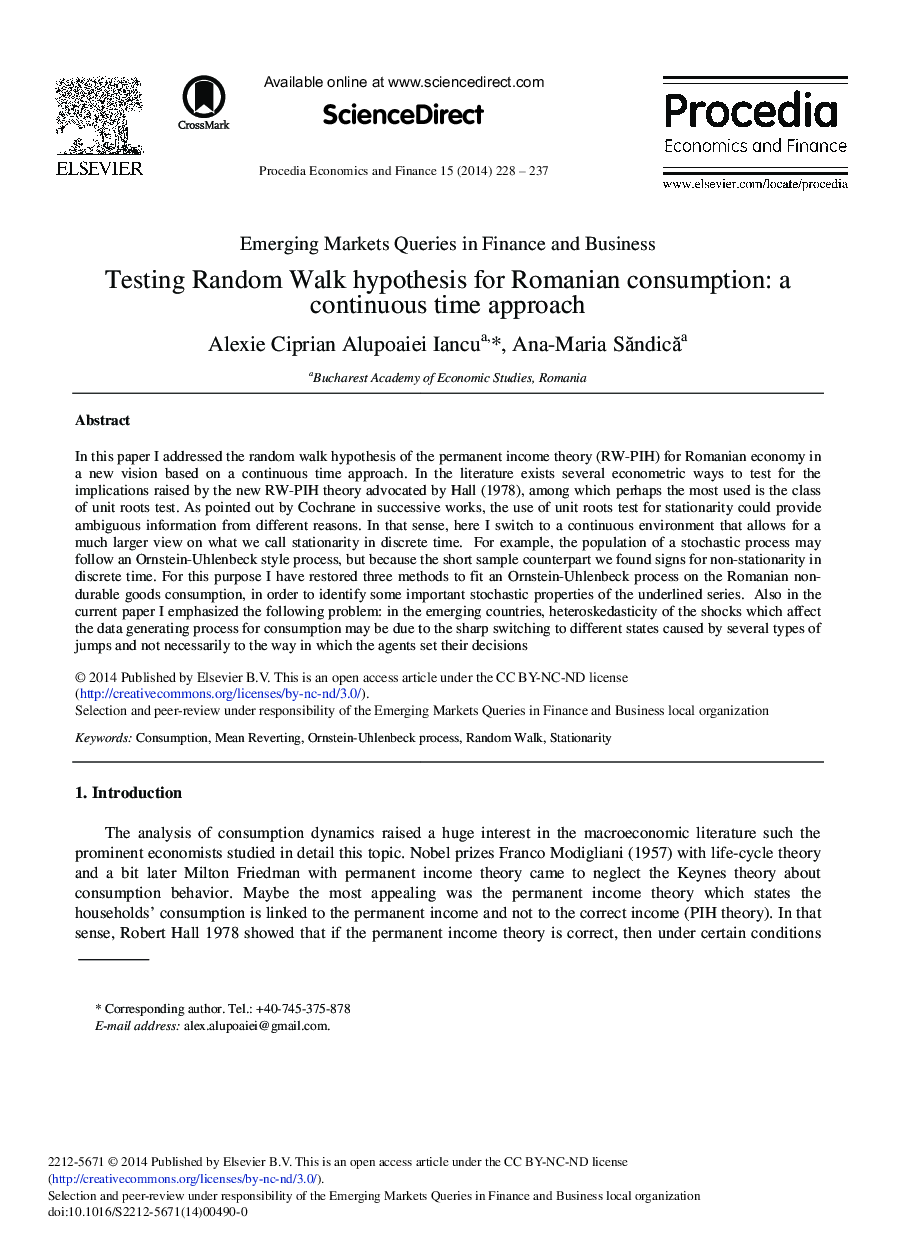| کد مقاله | کد نشریه | سال انتشار | مقاله انگلیسی | نسخه تمام متن |
|---|---|---|---|---|
| 983001 | 1480386 | 2014 | 10 صفحه PDF | دانلود رایگان |
In this paper I addressed the random walk hypothesis of the permanent income theory (RW-PIH) for Romanian economy in a new vision based on a continuous time approach. In the literature exists several econometric ways to test for the implications raised by the new RW-PIH theory advocated by Hall (1978), among which perhaps the most used is the class of unit roots test. As pointed out by Cochrane in successive works, the use of unit roots test for stationarity could provide ambiguous information from different reasons. In that sense, here I switch to a continuous environment that allows for a much larger view on what we call stationarity in discrete time. For example, the population of a stochastic process may follow an Ornstein-Uhlenbeck style process, but because the short sample counterpart we found signs for non-stationarity in discrete time. For this purpose I have restored three methods to fit an Ornstein-Uhlenbeck process on the Romanian non-durable goods consumption, in order to identify some important stochastic properties of the underlined series. Also in the current paper I emphasized the following problem: in the emerging countries, heteroskedasticity of the shocks which affect the data generating process for consumption may be due to the sharp switching to different states caused by several types of jumps and not necessarily to the way in which the agents set their decisions
Journal: Procedia Economics and Finance - Volume 15, 2014, Pages 228-237
